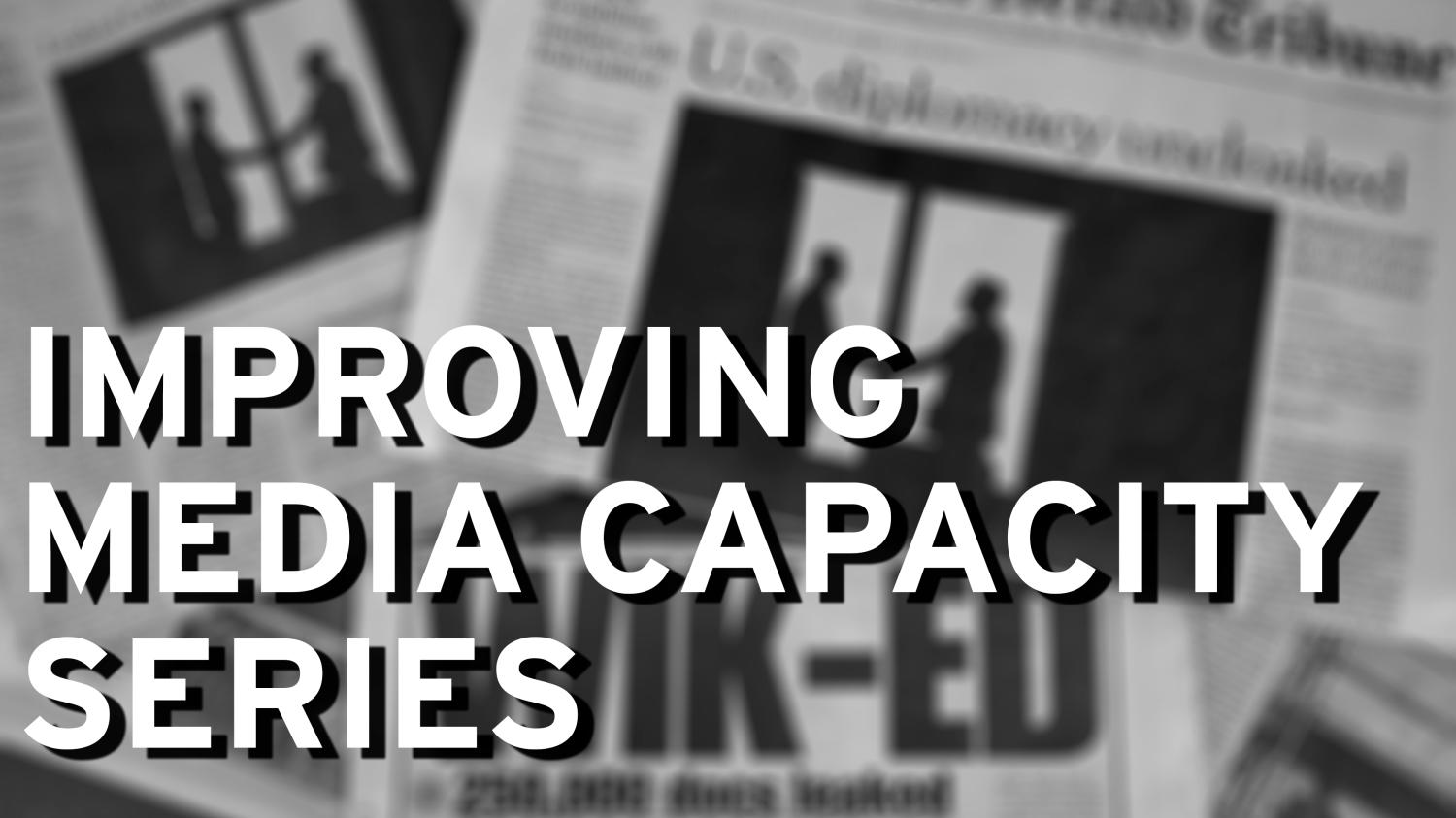Editor’s note: Recent innovations—the Internet, social platforms, and mobile devices—have upended how we receive, consume, share, and interpret the news. In this FixGov series, experts weigh in on the challenges facing the industry and discuss possible ways to enhance news coverage and improve media capacity. On May 19, senior fellow E.J. Dionne will convene a panel of top experts and practitioners to discuss how to fix the problems facing America’s Fourth Estate.
On April 20, there was joy in the newsroom of The Post and Courier in Charleston. The paper had won the Pulitzer Public Service gold medal for a series on domestic violence in South Carolina.
That same day, at The State in Columbia, yet another round of staff reductions was announced. Voluntary buyouts this time, not layoffs—not yet. But the news hit home, because The State is my newspaper—still, even though I was laid off from my job as editorial page editor in 2009.
When I started in The State’s newsroom in the late ’80s, we had about 150 people. The State‘s website now lists 45—some of whom are taking buyouts. There are 76 at The Post and Courier in Charleston.
This is not to say that Charleston is better-run. It had layoffs of its own in 2009. But Charleston has the advantage of not being a publicly traded company. Unfortunately, The State’s experience seems more typical of midsized newspapers in this country. Just Google “newspaper layoffs” to get a sense of the problem.
That matters because midsized papers have been the watchdog on the levels of government that most affect our lives. We drown in political news, commentary, gossip and minutiae out of Washington, but there’s no such informational vitality at the state and local level. When there are less than a third as many of you as there used to be, and you’ve added the 24/7 churn of web publishing, it gets hard to do anything more than feed the beast. Enterprise suffers.
What happened? The business model collapsed. Once, ads flowed in in such abundance that owning a press was like having a license to print money. But advertisers lost interest in purchasing entire markets, which means they lost interest in mass media. Marketing became about identifying individual customers and touching them directly.
The Internet isn’t killing newspapers. It’s just failing to rescue them. No one has figured out how to make enough money online to replace the golden goose that was print advertising.
And they’re all trying like crazy. I even try myself, on the micro level. But the income I get from ads on my blog is laughable.
So, with newspapers shrinking and blogs unlikely to replace them, who is going to watch our state legislatures and city halls across the country? Increasingly, no one. Or worse, the wrong people.
It wasn’t a newspaper that got credit for the biggest recent political story in South Carolina. Last year, longtime speaker of the House Bobby Harrell pleaded guilty to misusing his campaign account for personal benefit and resigned. Although The Post and Courier did initial reporting on his campaign spending, it was the relentless followup by a web publication called The Nerve that caused the attorney general to dig into Harrell’s finances.
The Nerve boasts the tagline, “Where government gets exposed.” Not just where this or that isolated government official does wrong. Where government gets exposed—because government is inherently a bad thing, you see. The Nerve is published by the South Carolina Policy Council, a think tank that is at the forefront of the “government is the problem” movement locally.
When newspapers did that kind of “exposing,” they did it while covering the whole community, the good with the bad. Or at least we aspired to that, and talked about it in “public journalism” workshops. And you knew who was paying newspapers’ bills—the people who bought the ads that you could see every day. If that created a conflict of interest, it was right in front of you.
Not so with The Nerve. Last week, the Policy Council’s president had an op-ed piece in The Wall Street Journal arguing against a campaign-finance law that would require groups that try to influence public policy to disclose their financial supporters—which the Policy Council calls “clamping down on political speech.”
I’m glad The Nerve “exposed” Bobby Harrell. But I’m uncomfortable that we now have to rely on organizations with axes to grind to do what thriving newspapers used to do.
All is not lost. There’s the Charleston Post and Courier’s Pulitzer. And my friends at The State did some remarkable work exposing the former speaker’s machinations aimed at holding on to power in the face of scandal. But there’s no escaping the fact that The Nerve pushed the story to that point.
What’s the solution? Someone has to figure out the new formula for paying for newsgathering. I see Midas-fingered figures such as Warren Buffett and Jeff Bezos investing in newspapers, and I hope they will come up with the answer, and become twice as rich in the bargain. They’ll deserve it because our representative democracy, dependent as it is on an informed electorate, needs our presses (or our web servers) to start “printing money” again.
The Brookings Institution is committed to quality, independence, and impact.
We are supported by a diverse array of funders. In line with our values and policies, each Brookings publication represents the sole views of its author(s).





Commentary
Improving media capacity: The decline of midsized papers
May 13, 2015